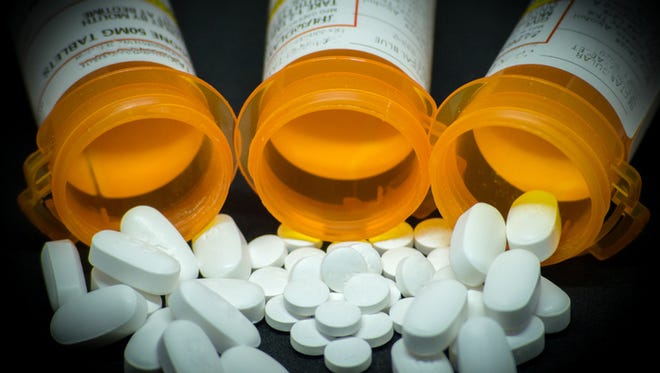Opioids: Hardly a “pain-free” solution

Each day in the United States, more than 115 people die from overdosing on opioids. Most are not stereotypical homeless junkies, but regular folks – including lots of baby boomers – who have become addicted to their prescription painkillers.
Besides the human toll, prescription opioid misuse has an "economic burden" of $78.5 billion a year in the U.S. alone, according to the National Institute on Drug Abuse. Sadly, the nation’s opioid epidemic shows no signs of abating.
“People want a quick fix for their pain but drugs have the reverse effect over the long haul,” noted Darrel Knick, a physical therapist at The Knee Institute and Regenerative Medicine. “When you are adding drugs, you are just not getting to the problem.”

That’s why patients at the West Bloomfield facility are greeted by a sign in the lobby that declares, “The Knee Institute and Rehabilitation Medicine does not prescribe opiates.”
As Robert Willard, general manager and director of operations, said, “We want to let people know that drugs are not our philosophy or objective. However, we are cognizant that there are times when they are totally necessary.”
The Knee Institute is a judgement-free zone that offers proven alternatives to drugs and surgery to relieve pain, and just as importantly, increase mobility so patients enjoy a better quality of life. As Willard said, “Drugs mask the problem but our goal is to solve the problem, and that is a big difference.”
The Knee Institute’s progressive procedures include stem cell therapy from umbilical cords – never embryos – and platelet rich plasma (PRP) from a patient’s own body. Both therapies help the body to heal itself, the essence of “regenerative medicine.”
Hands-on physical therapy is another key element of treatment, along with a strong dose of patient education.
“When a joint is out there are three dimensions that are out, so it is not a quick fix,” said Knick. “It does take time, but you will continue to get better from session to session. You go one degree at a time but you can get relief quickly because you’re moving that joint to where it should be.”
While you will get lots of personalized attention from your health care providers at The Knee Institute, Michigan’s only accredited facility with the OsteoArthritis Centers of America, you’ll never get false promises. If they discover you have a bone-on-bone condition, which occurs with about 10 percent of the people they see, they will refer you to an orthopedic surgeon.
“Education is power,” Willard said. “The problem is that we live in a society looking for a magic knife and a magic pill, but they don’t exist. We are always looking for alternatives that give us results without the need for surgery or drugs. We take the time to understand exactly what the problem is and explain to you how we can help. We have three rocks on a table here that are engraved with the words, ‘dream, hope and believe.’ And that’s really what we’re all about.”
For more information, call The Knee Institute at 248-430-5113 or visit thekneeinstitutes.com.